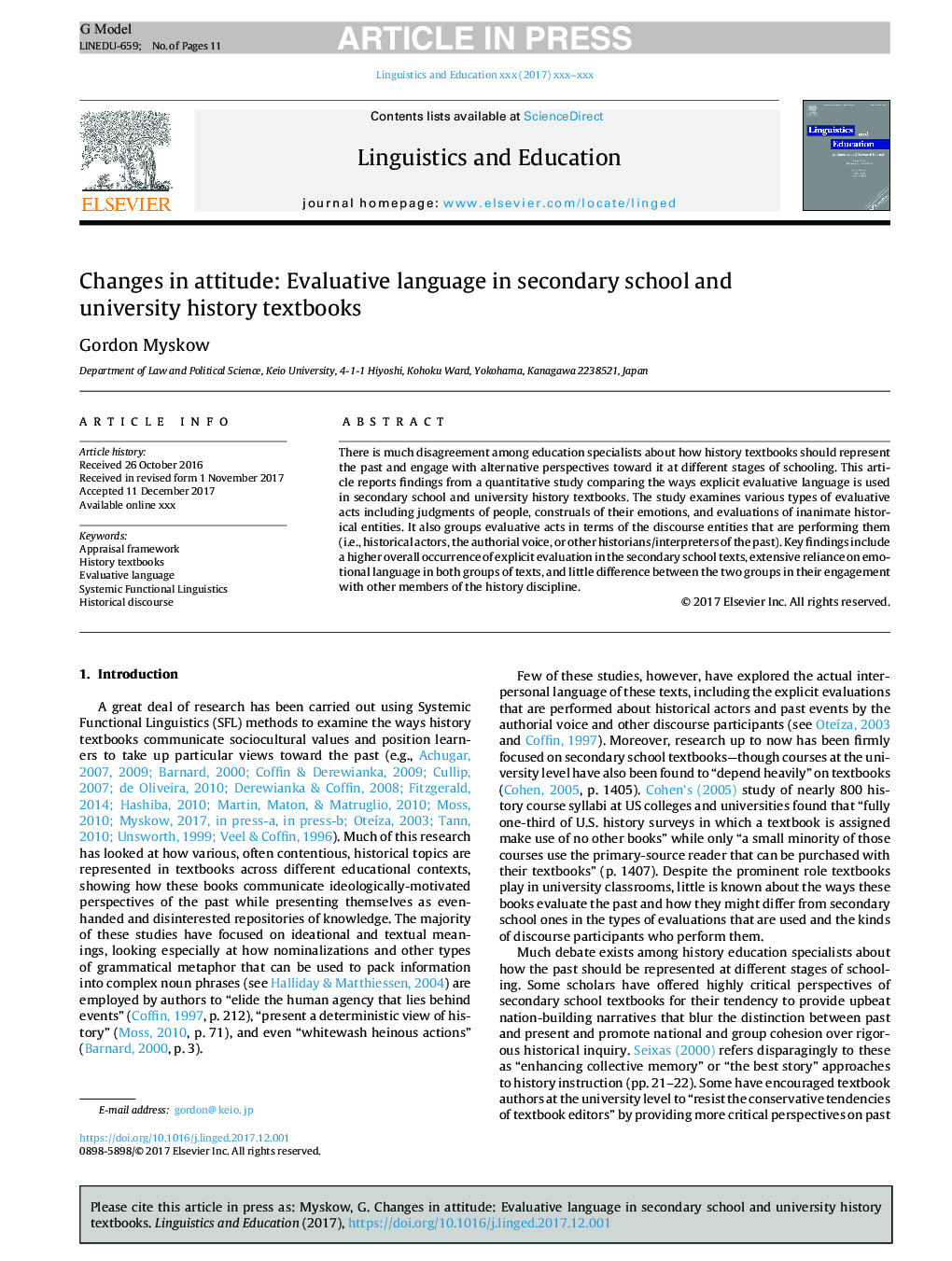| Article ID | Journal | Published Year | Pages | File Type |
|---|---|---|---|---|
| 6845943 | Linguistics and Education | 2018 | 11 Pages |
Abstract
There is much disagreement among education specialists about how history textbooks should represent the past and engage with alternative perspectives toward it at different stages of schooling. This article reports findings from a quantitative study comparing the ways explicit evaluative language is used in secondary school and university history textbooks. The study examines various types of evaluative acts including judgments of people, construals of their emotions, and evaluations of inanimate historical entities. It also groups evaluative acts in terms of the discourse entities that are performing them (i.e., historical actors, the authorial voice, or other historians/interpreters of the past). Key findings include a higher overall occurrence of explicit evaluation in the secondary school texts, extensive reliance on emotional language in both groups of texts, and little difference between the two groups in their engagement with other members of the history discipline.
Related Topics
Social Sciences and Humanities
Arts and Humanities
Language and Linguistics
Authors
Gordon Myskow,
